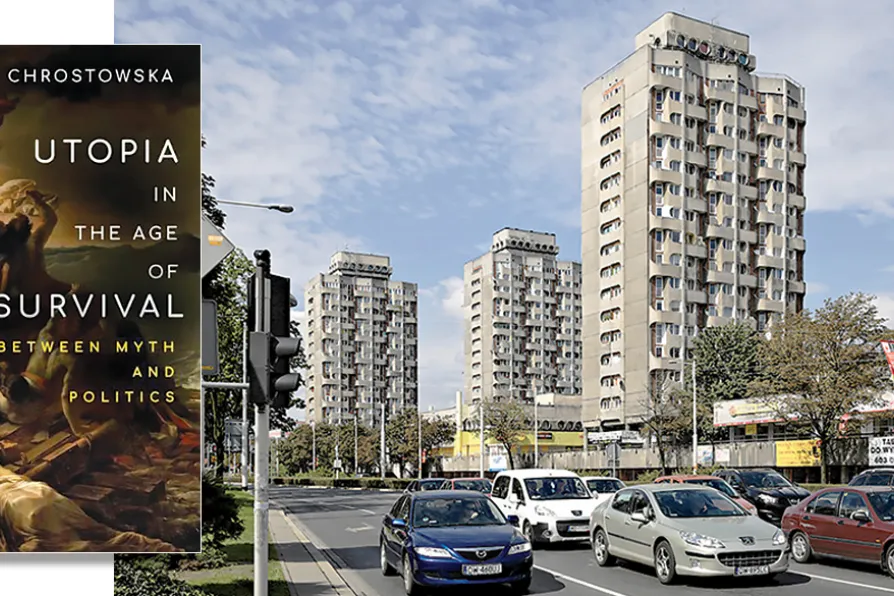MATTHEW HAWKINS enjoys a father’s memoir of life with his autistic son, and the music they explore together

 LIVING EXPERIENCE: Modernist housing estate on Grunwaldzki Square in Wroclaw, 1967-1975 by the multi-award winning architect Jadwiga Grabowska-Hawrylak
LIVING EXPERIENCE: Modernist housing estate on Grunwaldzki Square in Wroclaw, 1967-1975 by the multi-award winning architect Jadwiga Grabowska-Hawrylak
Utopia in the age of survival
by SD Chrostowska
Stanford University Press, £17.99
THIS short book is a contribution to academic debates within the tradition of thought known as critical social theory — the “Frankfurt School” — which has included writers such as Herbert Marcuse and Jurgen Habermas.
The general outlook was one critical of capitalism but more in terms of class relations as a system of domination, rather than primarily of exploitation.
In the post-war years the “school” became characterised by vehement opposition to “actually existing socialism” in the Soviet Union.
Indeed, recent research has charted the Frankfurt School’s relationship with the CIA through the Congress for Cultural Freedom, which worked to sustain a “compatible” or “non-communist left.”
Chrostowska’s book needs to be understood in terms of the very academic concerns of this enormously influential body of theory.
She grapples with the fact that the founders of the school despised all utopian visions, and she herself equates Soviet Russia, Nazi Germany and Maoist China as “miscarried utopian experiments.”
She nevertheless argues for a place for Utopia in this school of theory as a “speculative myth.”
Some of her discussion is illuminating. She emphasises that utopias are relative to their time in history.
The Land of Cokaygne, the “Golden Age” of Greek folk myth (and Shakespeare), William Morris’s “News from Nowhere” were all utopias of “shared plenty, pleasure and leisure.”
The Marxist historian, AL Morton characterised the Land of Cockaygne, a medieval poem popular across Europe, as “the Utopia of the hard-driven serf, the man for whom things are too difficult, for whom the bare getting of a bare living is a constant struggle.”
Drawing on these traditions, as well as the Utopias of sexual freedom envisaged in the 1968 student revolts, Chrostowska generalises that a utopia is “essentially an imaginary place where the struggle for existence is no longer necessary,” and hence all utopias have a common aim — “to transcend existing conditions and historical tendencies.”
In seeking for what utopia looks like to a modern age threatened by climate change and environmental collapse she defines it as simply human survival.
Redefining “utopia” in this way leads to a conclusion that Chrostowska might find unsettling. The achievements of “actually existing socialism” prove that raising all citizens above the mere struggle for existence is not imaginary.
Rejecting this experience means that Chrostowska’s interesting discussion runs into the sand.

JONATHAN TAYLOR is intrigued by an account of the struggle of Soviet-era musicians to adapt to the strictures of social realism













